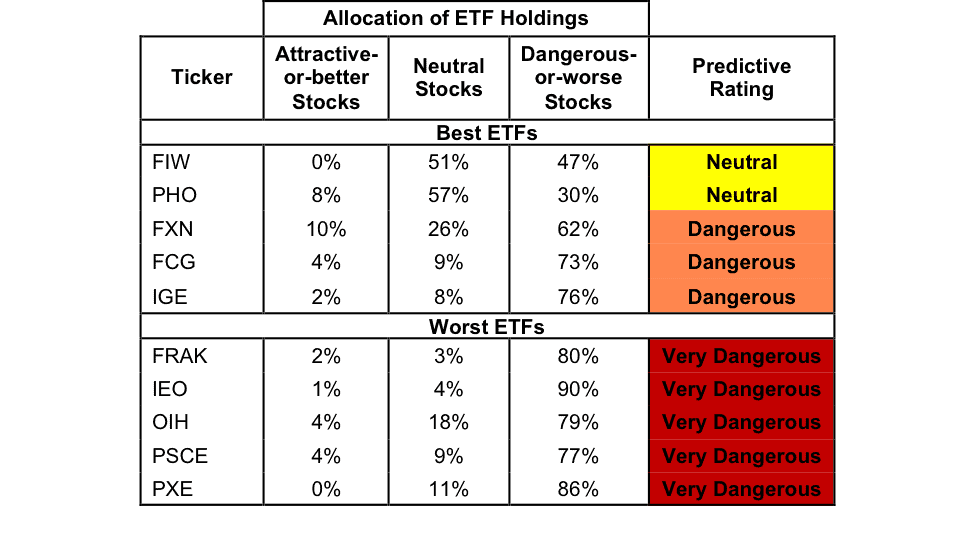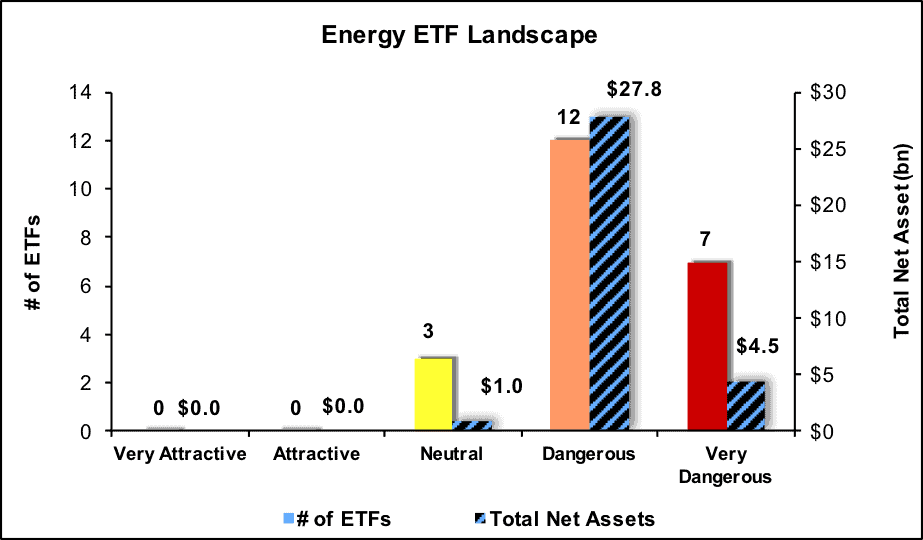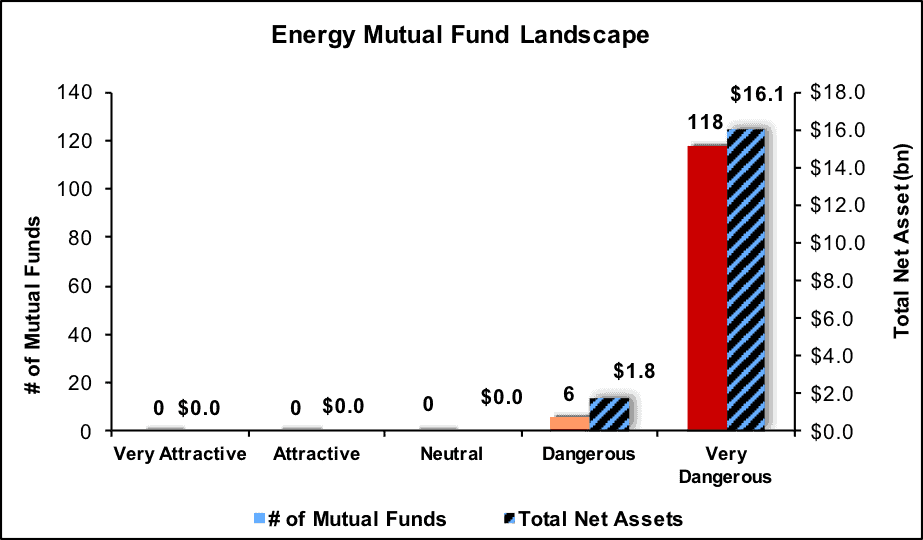The Energy sector ranks last out of the ten sectors as detailed in our 1Q17 Sector Ratings for ETFs and Mutual Funds report. Last quarter, the Energy sector ranked last as well. It gets our Very Dangerous rating, which is based on an aggregation of ratings of 22 ETFs and 124 mutual funds in the Energy sector as of January 17, 2017. See a recap of our 4Q16 Sector Ratings here.
Figures 1 and 2 show the five best and worst rated ETFs and mutual funds in the sector. Not all Energy sector ETFs and mutual funds are created the same. The number of holdings varies widely (from 25 to 134). This variation creates drastically different investment implications and, therefore, ratings.
Investors should not buy any Energy ETFs or mutual funds because none get an Attractive-or-better rating. If you must have exposure to this sector, you should buy a basket of Attractive-or-better rated stocks and avoid paying undeserved fund fees. Active management has a long history of not paying off.
Here is our ETF and mutual fund rating methodology, which leverages our rigorous analysis of each fund’s holdings. We think advisors and investors focused on prudent investment decisions should include analysis of fund holdings in their research process for ETFs and mutual funds.
Figure 1: ETFs with the Best & Worst Ratings – Top 5
* Best ETFs exclude ETFs with TNAs less than $100 million for inadequate liquidity.
Sources: New Constructs, LLC and company filings
PowerShares Progressive Energy Portfolio (PUW) is excluded from Figure 1 because its total net assets (TNA) are below $100 million and do not meet our liquidity minimums.
Figure 2: Mutual Funds with the Best & Worst Ratings – Top 5
* Best mutual funds exclude funds with TNAs less than $100 million for inadequate liquidity.
Sources: New Constructs, LLC and company filings
11 mutual funds are excluded from Figure 2 because their total net assets (TNA) are below $100 million and do not meet our liquidity minimums. See our mutual fund screener for more details.
First Trust Water ETF (FIW) is the top-rated Energy ETF and Vanguard Energy Index Fund (VENAX) is the top-rated Energy mutual fund. FIW earns our Neutral rating and VENAX earns our Dangerous rating.
PowerShares Dynamic Energy Exploration & Production (PXE) is the worst rated Energy ETF and BlackRock Natural Resources Trust (MAGRX) is the worst rated Energy mutual fund. Both earn a Very Dangerous rating.
170 stocks of the 3000+ we cover are classified as Energy stocks.
The Danger Within
Buying a fund without analyzing its holdings is like buying a stock without analyzing its business and finances. Put another way, research on fund holdings is necessary due diligence because a fund’s performance is only as good as its holdings’ performance. Don’t just take our word for it, see what Barron’s says on this matter.
PERFORMANCE OF FUND’s HOLDINGs = PERFORMANCE OF FUND
Figures 3 and 4 show the rating landscape of all Energy ETFs and mutual funds.
Figure 3: Separating the Best ETFs From the Worst ETFs
Sources: New Constructs, LLC and company filings
Figure 4: Separating the Best Mutual Funds From the Worst Mutual Funds
Sources: New Constructs, LLC and company filings
This article originally published here on January 28, 2017.
Disclosure: David Trainer, Kyle Guske and Kyle Martone receive no compensation to write about any specific stock, sector or theme.



